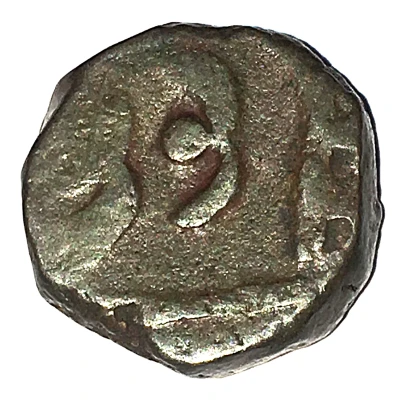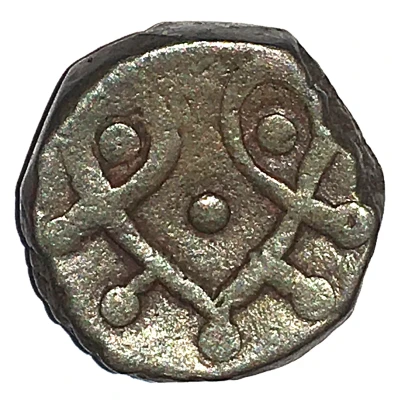


© Vinu mohan
1 Paisa - Gopal Singh ND
| Copper | 9.8 g | 18 mm |
| Issuer | Princely state of Jhabua (Indian princely states) |
|---|---|
| Type | Standard circulation coin |
| Years | 1897-1952 |
| Value | 1 Paisa |
| Currency | Rupee |
| Composition | Copper |
| Weight | 9.8 g |
| Diameter | 18 mm |
| Thickness | 4 mm |
| Shape | Round |
| Demonetized | Yes |
| Updated | 2024-10-05 |
| Numista | N#159038 |
|---|---|
| Rarity index | 92% |
Reverse
Heart shaped leaf
Comment
Jhabua was the Princely State of India during the period of British Raj. In early period this State was under the Bhopawar Agency of Central India and later, it became a part of the Malwa Agency in 1927. After India’s independence in 1947, Jhabua’s last ruler signed the accession to the Indian Union on 15th June 1948, and Jhabua became the part of Madhya Bharat State. In 1956, it merged into the newly formed state of Madhya Pradesh.Rao Bhirji of Marwar was known as the earliest ancestor of the ruling family of Jhabua. The state was founded by his descendant, Kunwar Kesho Das, in 1584. He was given the title of Raja by Mughal emperor Jahangir as a reward for a successful campaign in Bengal.
The only coins ever minted in the state were Paisa and half Paisa. The obverse has objects like a Stylized leaf, four-lobed flowers while the reverse has VS date in Devanagari script. All coins were struck at Jhabua mint.
Interesting fact
The 1 Paisa coin from the Princely state of Jhabua, featuring Gopal Singh ND (1897-1952), is interesting because it was made of copper, a metal that was widely used in the production of coins during that time period. Copper was chosen for its durability, affordability, and resistance to corrosion, making it an ideal material for coinage. The use of copper in the production of coins also helped to reduce the cost of production, making it more accessible to the masses. This coin, in particular, weighs 9.8 grams, which is relatively heavy for a coin of its size, indicating that it was made with a high level of precision and craftsmanship.